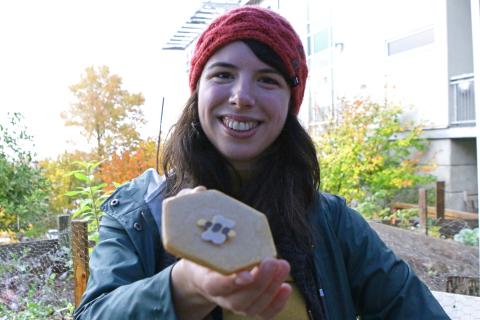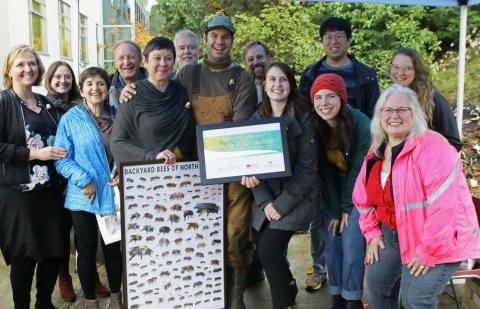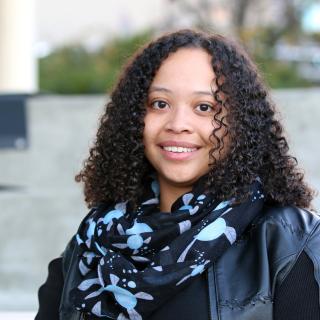Bee City Canada designation commits VIU to organizing activities that help protect pollinators on campus and raising awareness about the importance of pollinators.
Vancouver Island University’s (VIU’s) Nanaimo campus is set to become a hive of bee-friendly events and activities thanks to its designation as a Bee Campus.
Bees are tiny insects, but they pack a large ecological punch. More than 70% of all plant species are dependent on pollinators for reproduction; yet pollinator populations worldwide are on the decline due to factors such as deforestation, lack of flowers and pesticide use.

“This designation gives our students a chance to get involved in an important issue on the world stage right now – we’re talking about what some have argued is the most important species on Earth,” says Dr. Pam Shaw, Director of VIU’s Master of Community Planning program. “One of the program’s goals is to create urban planners who are able to help shape communities encountering climate change and other environmental issues. Pollinator health is one of these important issues.”
Margot Thomaidis, an MCP student and member of the VIU Peace Garden Educational Ecosystem club, says club members, with the support of the MCP program, plan to host regular workshops on pollinator-friendly plants and habitats. The club is also diversifying the mix of plants growing in the community garden and plans to create an edible forest that includes pollinator-friendly plants. VIU’s Sustainability Advisory Committee and Faculty of Education each provided $1,000 to help with this work.
The MCP program plans to host colloquiums on the topic of food planning and community planning that pollinator health would factor prominently in.
“Being part of Bee City Canada helps us to think more deeply about how we can do better to raise awareness about the importance of pollinators and support habitats on campus,” says Thomaidis. “This designation recognizes that this is a place and space that is occupied by more than humans – that we have an opportunity through curriculum development and education to raise the level of knowledge. We are now tied to a wider community of cities, towns, First Nations and educational institutions focused on this issue.”
Shelly Candel, Director of Bee City Canada, says the organization is excited to have VIU sign on as the first Bee Campus in BC.
“There is commitment from the administration, employees and students to make VIU the buzz of BC and a role model for others to take action and regenerate our landscapes to ensure a healthy ecosystem for the pollinators and the people of this beautiful province,” she says.
-30-
MEDIA CONTACT:
Jenn McGarrigle, External Communications Advisor, Vancouver Island University
P: 250.740.6559 | C: 250.619.6860 | E: Jenn.McGarrigle@viu.ca | T: @VIUNews






